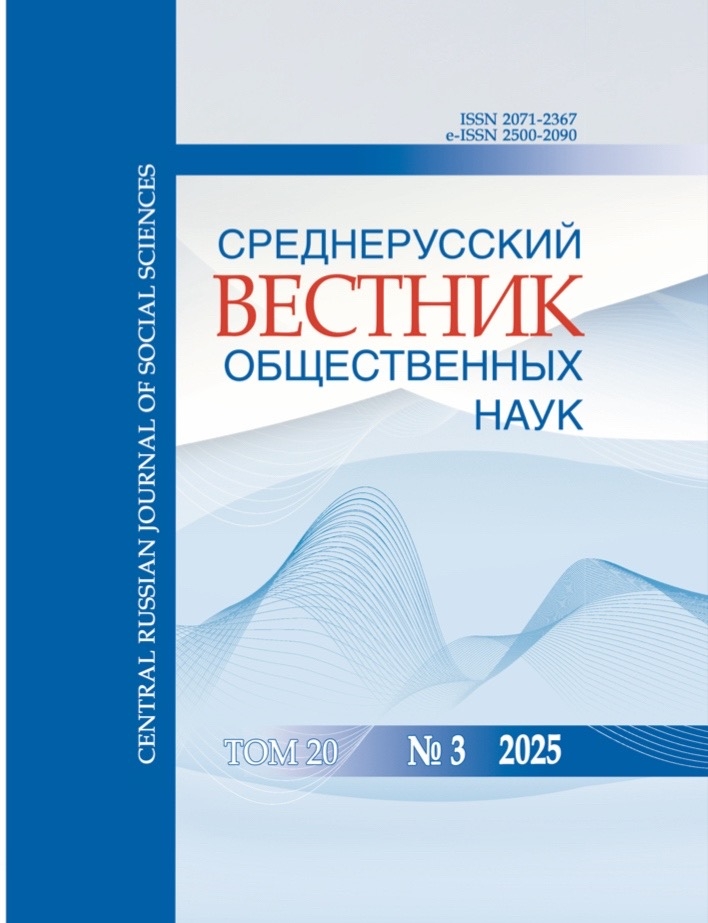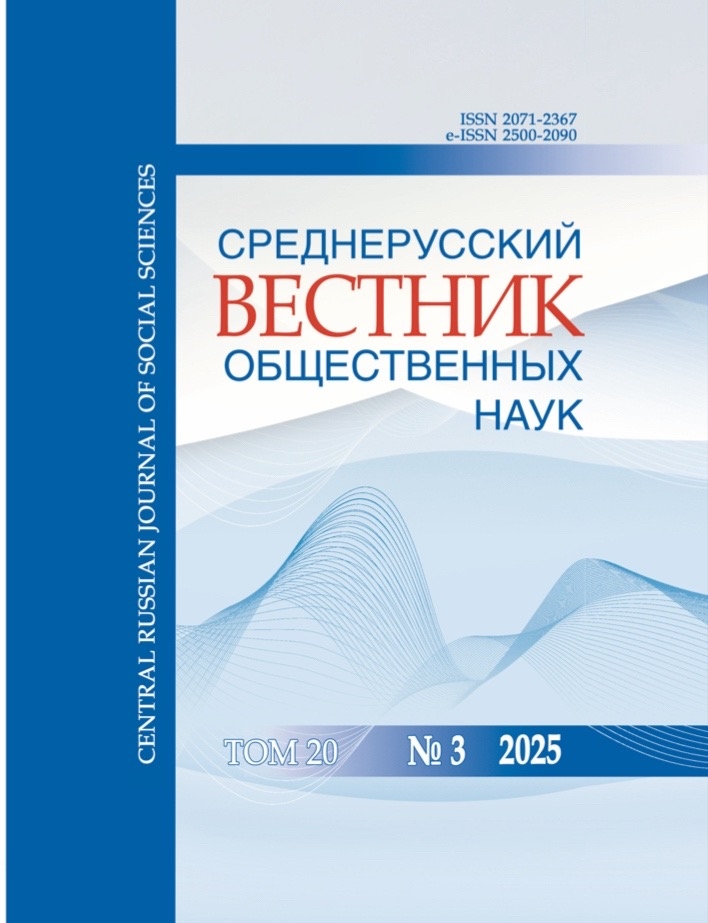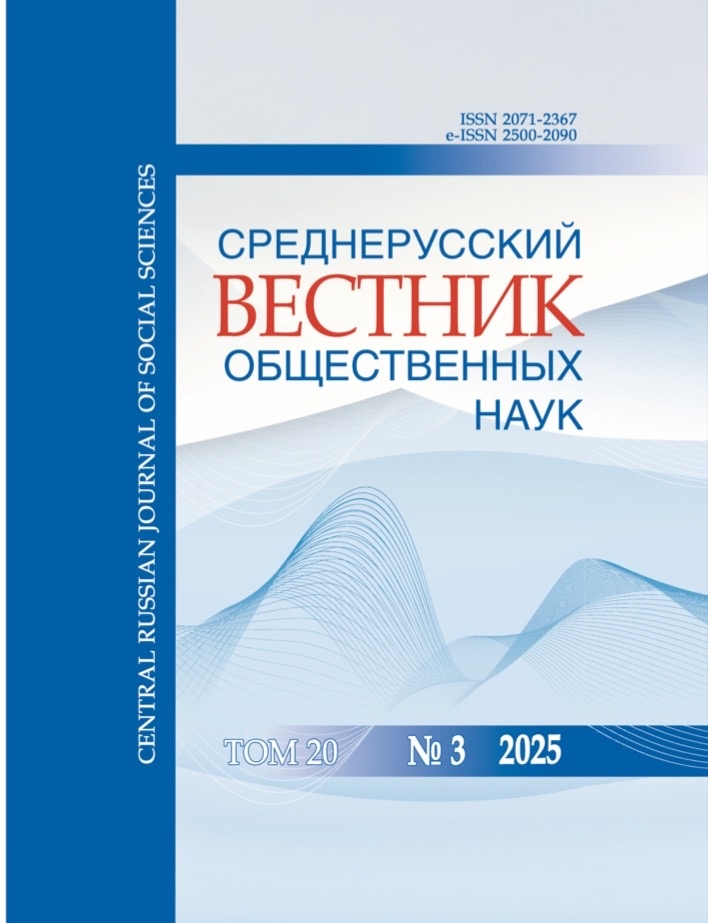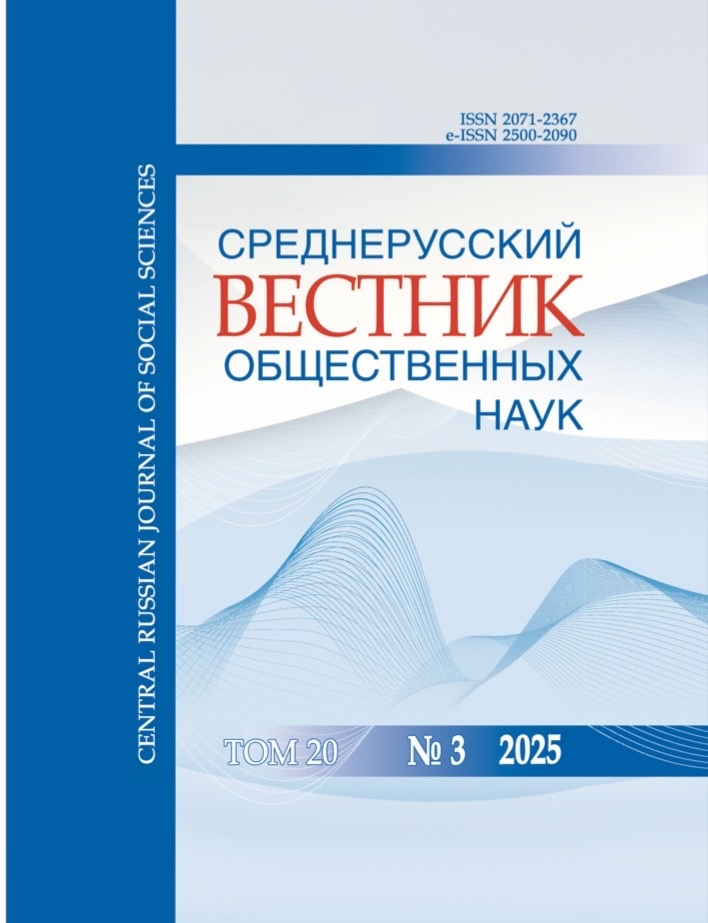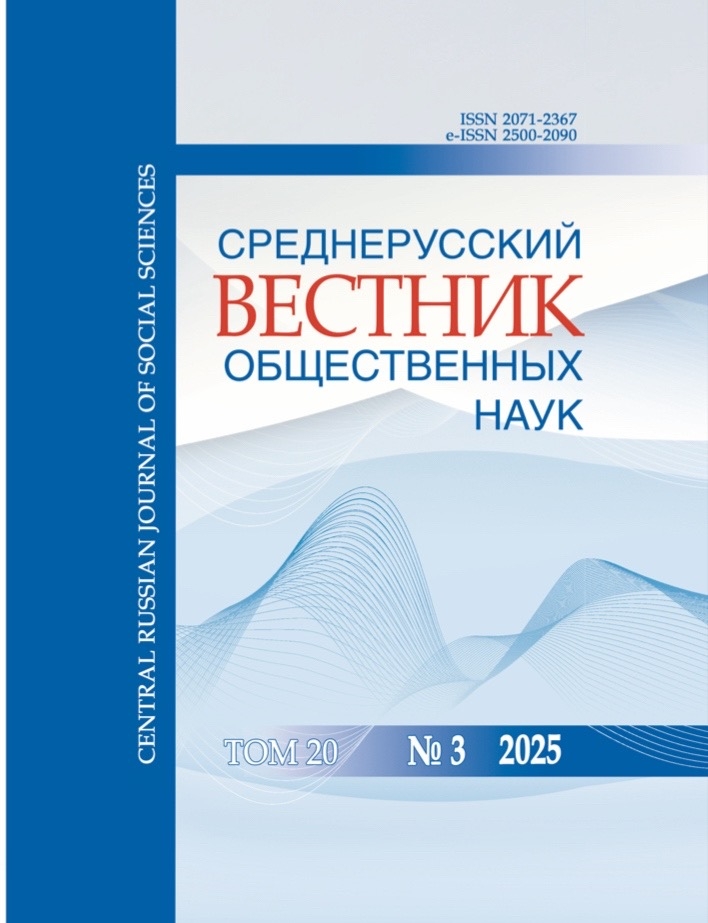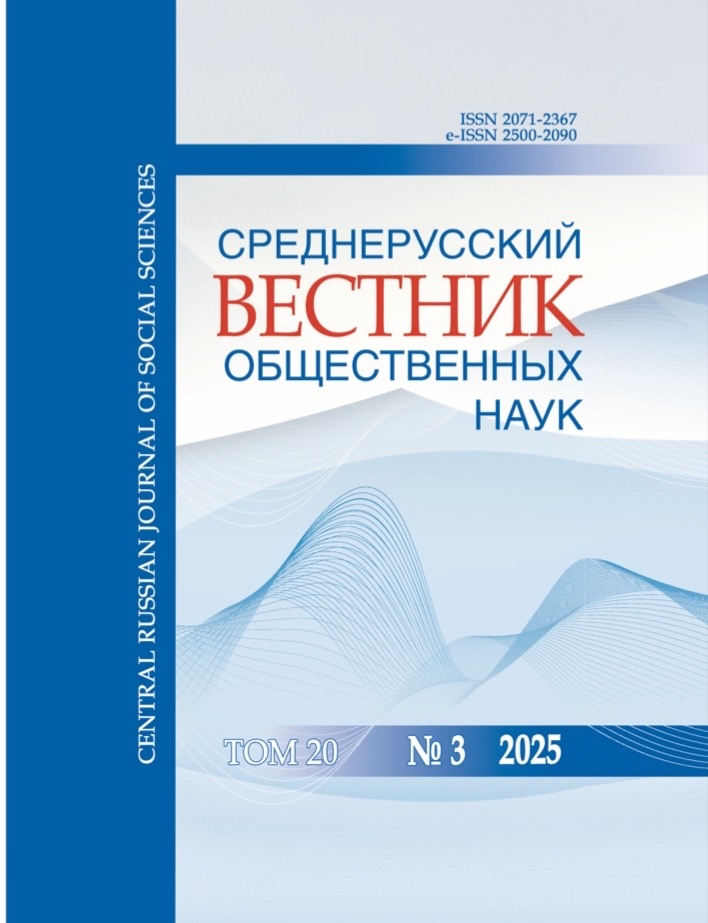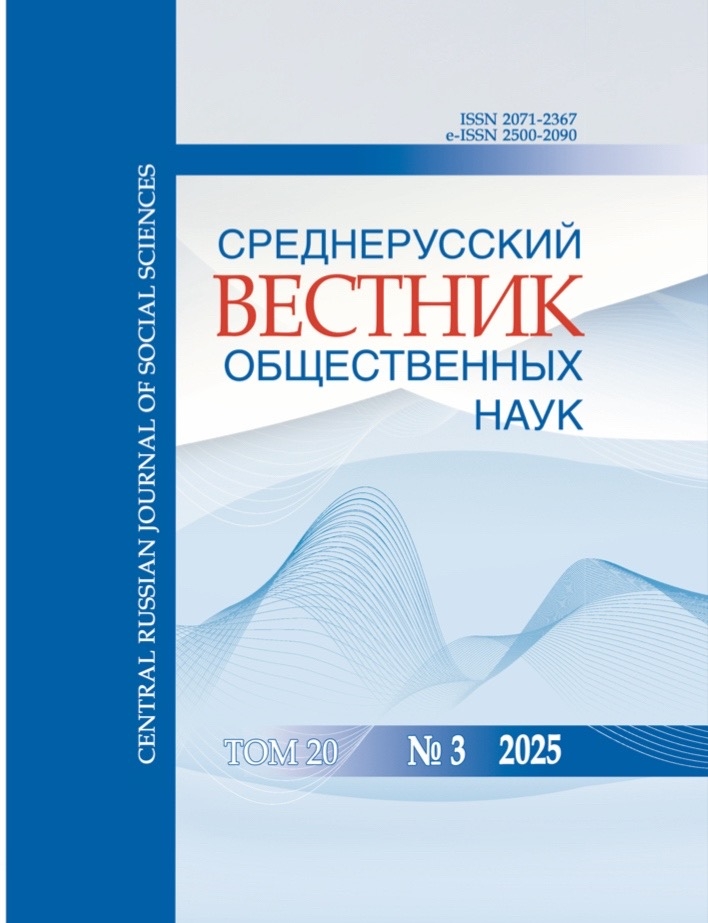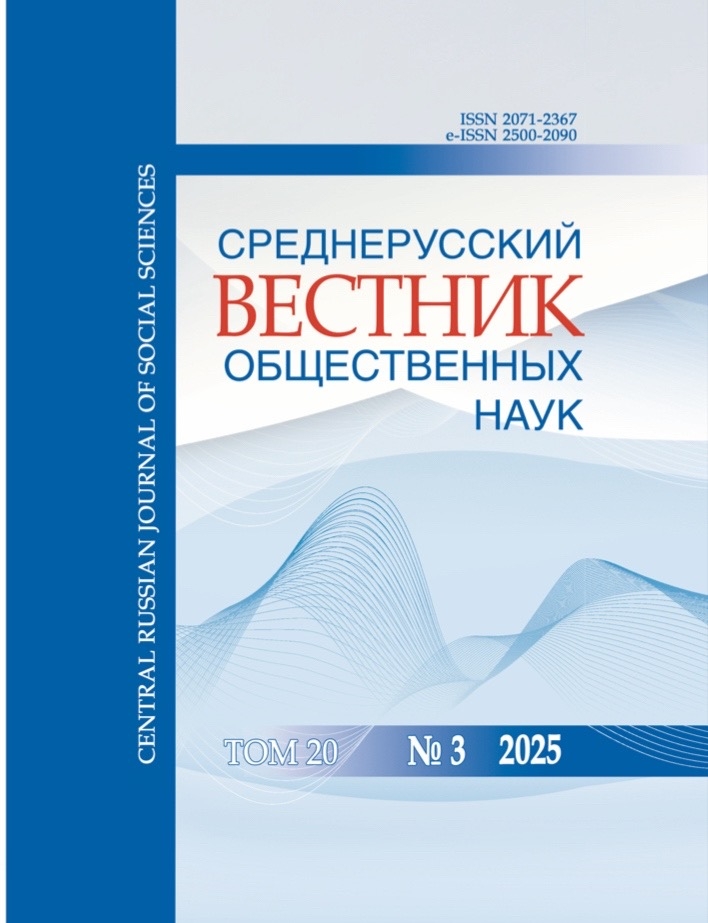О журнале
«Среднерусский вестник общественных наук» является рецензируемым научным изданием, выпускаемым в Российской академии народного хозяйства и государственной службы при Президенте РФ (на базе Среднерусского института управления — филиала РАНХиГС). Журнал издается с 2006 г.
На страницах журнала представлены статьи по проблемам политологии, правового регулирования управленческих отношений, экономического развития регионов России, управления природопользованием в РФ, регионального и муниципального управления, продвижения интересов Российской Федерации в геополитическим пространстве.
Миссия журнала. Предоставление возможности участвовать в обсуждении развития современного общества с позиций политологии, социологии, экономики, а также изучения правовых, образовательных, ментальных и иных аспектов, формирующих и обуславливающих развитие Центральных регионов России.
Цель — публикация оригинальных статей, обзоров и рецензий в области теории, методологии и эмпирических исследований в области социологии, политологии и экономики. Информационная площадка о политических, социологических и экономических процессах жизни регионов и изучению зарубежного опыта политического согласия, социального созидания и экономического развития.
Объявления
Журнал включен в «Белый список»
Текущий выпуск
Социология и жизнь
Политология и государственная политика
Экономика и управление
«Среднерусский вестник общественных наук» является рецензируемым научным изданием, выпускаемым в Российской академии народного хозяйства и государственной службы при Президенте РФ (на базе Среднерусского института управления — филиала РАНХиГС). Журнал издается с 2006 года.
ISSN (Print): 2071-2367, ISSN (Online): 2500-2090.
Периодичность журнала с 2025 г. - 4 выпуска в год (март, июль, октябрь, декабрь).
Спонсор: финансирование журнала осуществляется за счет средств учредителя (Российская академия народного хозяйства и государственной службы при Президенте РФ).
Индексация, перечни, архивирование: ВАК (К2), РИНЦ, CrossRef, Sherpa Romeo, Ulrich Web Global Serials Directory, РГБ, Google Scholar, Mendeley, Research4Life, lens.org, OpenAIRE, Wikidata, Internet Archive Scholar
В соответствии с решением Президиума ВАК Минобрнауки РФ журнал включен в Перечень ведущих рецензируемых научных журналов и изданий, выпускаемых в Российской Федерации.
ОСНОВНЫЕ РУБРИКИ:
- Социология и жизнь
- Политология и государственная политика
- Экономика и управление
- Внешний мир и геополитические процессы
Отрасли, по которым журнал входит в перечень ВАК:
- 5.2.1. Экономическая теория (экономические науки),
- 5.2.4. Финансы (экономические науки),
- 5.2.5. Мировая экономика (экономические науки),
- 5.4.6. Социология культуры (социологические науки),
- 5.4.7. Социология управления (социологические науки),
- 5.5.2. Политические институты, процессы, технологии (политические науки),
- 5.5.4. Международные отношения (политические науки),
- 5.2.3. Региональная и отраслевая экономика (экономические науки),
- 5.2.6. Менеджмент (экономические науки),
- 5.4.4. Социальная структура, социальные институты и процессы (социологические науки),
- 5.5.3. Государственное управление и отраслевые политики (политические науки)
